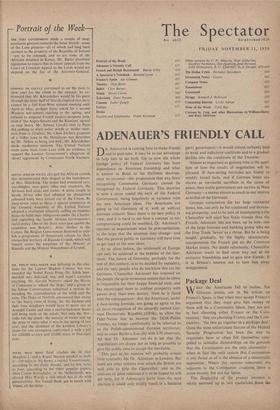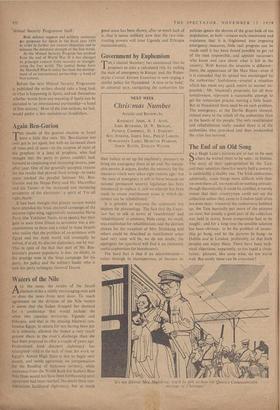Package Deal
WFIAT the Americans fail to realise, Tan Gilmour points out in his article on Franco's Spain, is that when they accept Franco's argument that they must give him money or there will be a Communist Spain, they are not in fact choosing either Franco or the Com- munists: they are choosing Franco and the Com- munists: 'the two go together in a package deal.' Quite the most unfortunate feature of the Mutual Security Programme has been the way its organisers have so often felt themselves com- pelled to subsidise dictatorships on the grounds that the Communists are the only alternative— when in fact the only reason that Communism is any threat at all is the absence of a democratic opposition. Where the. nations concerned are adjacent to the Communist countries there is some excuse; but not for Spain.
The illogicality of the present position is nicely summed up in two quotations from the Mutual Security Programme itself :
Both defence support and military assistance are proposed for Spain in the fiscal year 1959 in order to further our mutual objectives and to enhance the defensive strength of the free world.
As the Mutual Security Program has evolved from the end of World War 11 it has changed its principal concern from recovery to strength- ening the free world. The central theme from the Marshall Plan to today has been the develop- ment of an international partnership--a bond of free nations.
Before the next Mutual Security Programme published the writers should take a long look at what is happening in Spain, and ask themselves whether words have any meaning if Spain can be included in 'an international partnership—a bond of free nations.' Most of the free nations, we feel, would prefer a less malodorous bondfellow.











































 Previous page
Previous page